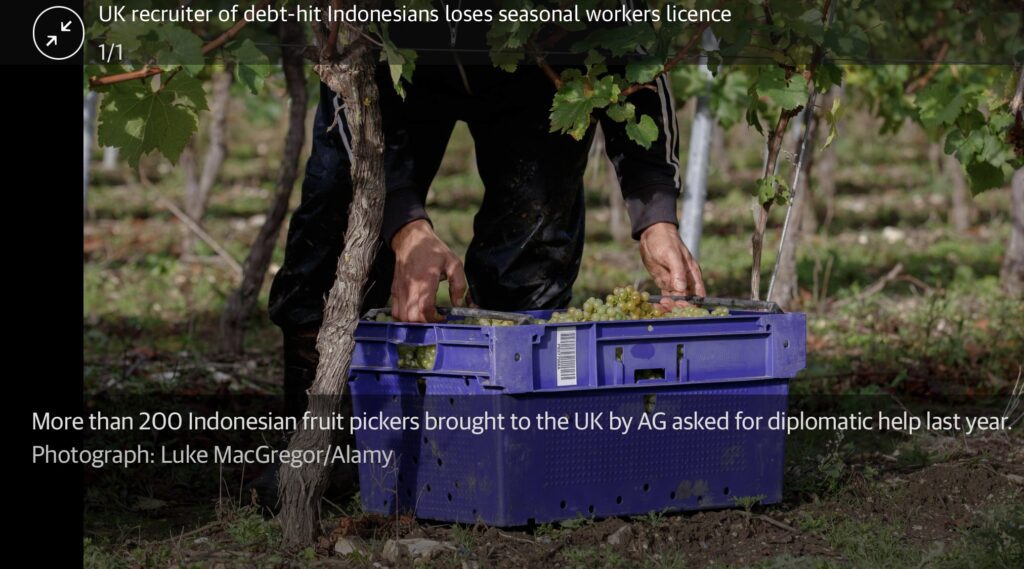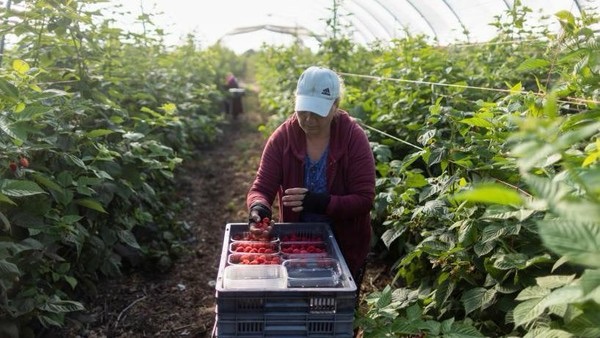13th Nov 2024: Diplomat – Indonesian Workers Say They Faced Modern Slavery in the UK. Who Is Responsible?
A post-Brexit seasonal labor migration scheme has been marred by claims of exploitative practices and modern slavery. Cross-border cases, where legal matters straddle different jurisdictions, are always a challenge. One such case involves a group of Indonesian nationals who allege that they were victims of human trafficking, debt bondage, and modern slavery when they went to work in the United Kingdom to pick fruit and vegetables in the wake of Brexit, the country’s exit from the European Union.
Sourced from: The Diplomat – 13th November 2024 – By Aisyah Llewellyn
Many of the workers were early recipients of the U.K.’s seasonal workers visa, which was piloted in 2019 and rolled out in the coming years, ostensibly to fill the labor vacuum created by Brexit in 2020 which meant that the U.K. could no longer easily recruit seasonal workers from the EU and had to look further afield to countries like Indonesia and Nepal.
15th November 2024: TBIJ: Seasonal workers find no hope in employment tribunals
Original Source: TBIJ – 15th November 2024
Migrant farmworkers face huge barriers to justice – including rules effectively preventing oral evidence.
Almost immediately, however, problems began, when it became clear that the visa, the workers’ expectations, and promises of wealth picking fruit in the U.K. had not been properly thought through by the U.K. government.
One of the main issues was the length of the visa, which was set at six months, after which workers would have to return to their home countries. This made it sound as if they would be able to work for a full half year, returning home with six months’ wages which were projected to be thousands of British pounds – or a small fortune in the workers’ home countries.
However, when the workers arrived at farms across the U.K. to pick fruit such as cherries, apples and strawberries, it emerged that harvest seasons and the length of the visa did not align, particularly for workers arriving later in the harvest season.
Strawberry picking for example, only took place for a few months before all the fruit had been harvested, meaning that workers then needed to move to other farms at their own expense or return to Indonesia sooner than planned.
Some workers also alleged that they were sacked almost immediately for not meeting unrealistic fruit picking targets, which often required them to pick tons of fruit every hour. To make matters worse, the majority of workers had no experience working in the agricultural sector, which requires skill and experience in order to meet zealous targets.
The situation came to a head when a number of workers refused to return to Indonesia when their visas expired, claiming that they were heavily in debt in their home country – having taken loans from loan sharks to pay for the upfront costs of their visas, passports, medical checks, and other expenses needed to travel to the U.K. – effectively landing them in debt bondage.
What does U.K. law say about all of this?
According to the Gangmasters and Labour Abuse Authority (GLAA), the U.K. agency responsible for investigating labor exploitation, and which has now launched an investigation into the seasonal workers’ scheme, “a licensing holder must not charge a fee to a worker for any work-finding services.”
However, there is a legal difference between “fees,” or paying a recruitment agency to secure work, and “costs” like travel and medical checks. While the paying of fees by workers to a recruitment agency is illegal (and should be paid to the agency by the employer), “costs” may be paid by workers as long as they are “voluntary” – although one could argue that is it unlikely that a worker, hoping for lucrative work in the U.K. or elsewhere, would refuse to pay such costs, raising the question of how “voluntary” it really is.
“Additional goods or services must be optional and cannot be discriminated against if not taken up,” GLAA legislation continues, which sounds reasonable in principle but in practice means that workers who do not pay for services are likely to lose out on the possibility of work abroad.
One of the Indonesian workers who went to the U.K. has now taken the Home Office to task over the half-baked scheme, alleging that he was a victim of human trafficking and that he thought that he would be able to work legally in the U.K. for a full two years.
There was no such two-year visa available, although the worker alleged that this was what was promised to him in Indonesia – and this again raises the legal question of who is to blame for the debacle faced by the Indonesian workers in the U.K.
Was it the legal responsibility of the U.K. government to ensure that workers had not been made false promises in Indonesia or the fault of the Indonesian agencies tasked with recruiting them who also, it seems, had not understood the length of U.K. harvest seasons or perhaps the mechanics of extending a seasonal workers visa once on British soil?
Who was responsible for checking the robustness of the process between Indonesia and the U.K. and ensuring that no exploitation of workers took place, at any point during their recruitment and employment journey?
In 2022 alone, some 1,454 Indonesian workers traveled to the U.K. as part of the seasonal workers scheme according to U.K. government data, before the U.K. froze recruitment from Indonesia and Nepal in 2023 when concerns were raised about exploitative practices.
Recruitment started again in 2024, although the Home Office challenge and the GLAA investigation are still underway.
Whatever the outcome of either case, it is undoubtedly the workers who will continue to suffer and who remain saddled with huge debts, persistent requests for payment from loan sharks and fears of returning home with nothing.
29th Oct 2024: He left Indonesia, seeking a better life in the UK. All he found was debt and despair
‘Budi’ is bringing a case against the UK Home Office after leaving Indonesia, claiming his seasonal worker experience made him a victim of human trafficking.
Sourced from: SCMP by Aisyah Llewellyn – 29th October 2024
On a brisk morning in July 2022, 18-year-old “Budi” stepped onto British soil for the first time, leaving behind the bustling streets of Jakarta for the promise of a lucrative job picking fruit under the United Kingdom’s seasonal workers scheme.
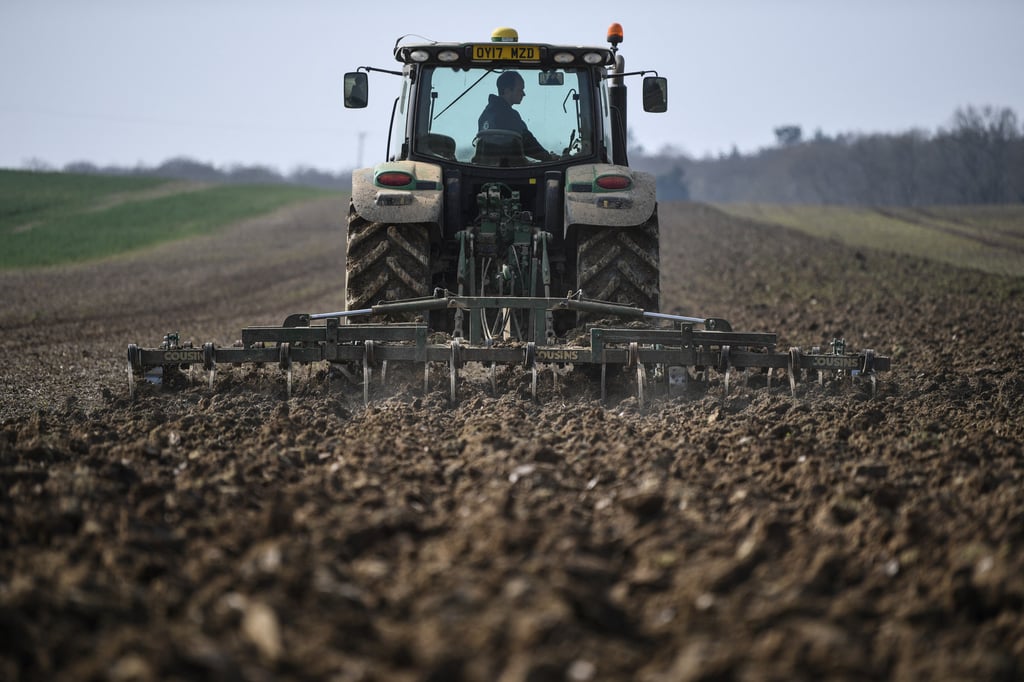
Filled with hopes of a brighter future, he envisioned a life where hard work would lead to financial freedom. But little did he know that this journey would soon entangle him in a labyrinth of debt and exploitation, compelling him to challenge the very system he believed would offer him opportunity.
Now 20, Budi is bringing a case against the UK Home Office, alleging that he is a victim of modern-day slavery after his experience with the seasonal worker scheme devolved into a harrowing ordeal.
At 17, he dreamed of studying science at university when a friend introduced him to the UK’s seasonal worker scheme, launched in 2019 to address labour shortages anticipated after Brexit by recruiting non-European Union workers for agriculture.
“My friend said that I could work in the UK for two years on a seasonal worker visa, and I thought that it would be an investment in my future,” Budi told This Week in Asia, using an alias to protect his identity.
“I thought that, if I worked for two years, I would be able to pay off all my debts in the first year and then save all my money in the second year before I returned to Indonesia.”Budi says he spent more than US$5,400 to get to the UK, much of which is owed to loan sharks. Photo: Handout
However, the promised two-year visa did not exist. Instead, the UK only offered short six-month visas, and prospective workers were required to pay all their fees upfront, including costs for flights, medical checks, passport fees and visa applications.
Budi spent more than US$5,400 on getting to Britain – including around US$3,200 borrowed from loan sharks.
Upon arrival, he was immediately dispatched to a farm near Birmingham to pick strawberries, a job he had never done before.
“It was pretty difficult because of the targets. We had to pick seven large trays of strawberries every hour, but it was too much and I could never do it quickly enough,” he recalled.
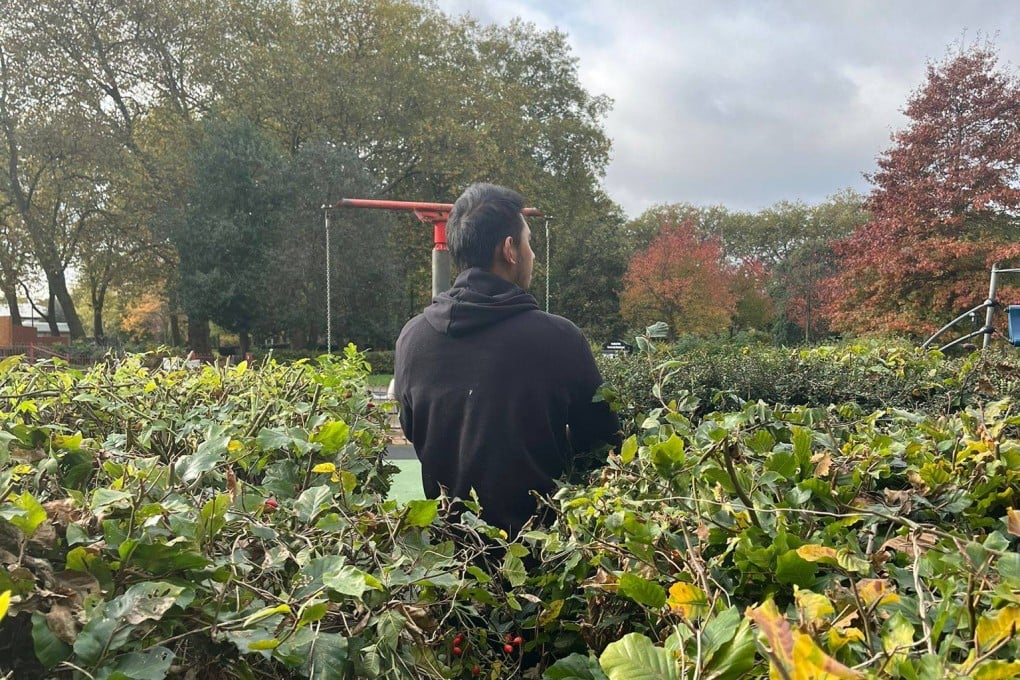
After a month, Budi was moved to another farm that was already filled with seasonal workers from Nepal, Romania, Poland, Lithuania and Ukraine.
“By the time I got to the new farm there was not much of the harvest season left and most of the fruit had already been picked. In the end, the farm recommended that I move to yet another farm to pick apples,” he said.
The apple farm presented the biggest challenge, as a sudden cold snap forced him to work in freezing temperatures without a jacket or any cold-weather clothing. None of the farms provided adequate gear, and he could not afford to buy any, he said.
After a month on the farm, the apples were gone, just like the strawberries.
The farm offered to send Budi back to Indonesia, stating that the harvest season had ended. But he had only earned about US$1,200 during his time in the UK, a sum that would not cover the loans he had taken out back home.Picked apples are seen at a farm in Britain that employs migrant workers to help harvest the fruit. Photo: Reuters
Desperate for work, he found a job at a Chinese restaurant as a kitchen porter, enduring 12-hour shifts six days a week for a meagre salary of US$380.
“I didn’t have a place to stay, so asked the restaurant owner if I could sleep in a storage room,” he said. “They cleaned it and brought in a mattress for me to sleep on.”
Fearing the repercussions of returning to Indonesia without being able to repay his debts, Budi decided to challenge the Home Office, describing himself as a victim of human trafficking and modern slavery.
“I didn’t have any knowledge about the seasonal worker system and didn’t know that I could not work in the UK for two years and would only be able to stay for a maximum of six months,” he said. “My money was all lost for absolutely no reason, and I was terrified of going home to Indonesia because of threats from loan sharks if I couldn’t pay my debts.”
Budi has partnered with the Anti-Trafficking and Labour Exploitation Unit to bring a test case against the UK Home Office, claiming damages for his debt bondage. He hopes the case will shed light on the issues faced by those wishing to work in Britain.
A handful of other Indonesians are also known to have claimed asylum, but Budi is the only one involved in the test case. His experience is not unique to his compatriots, however.
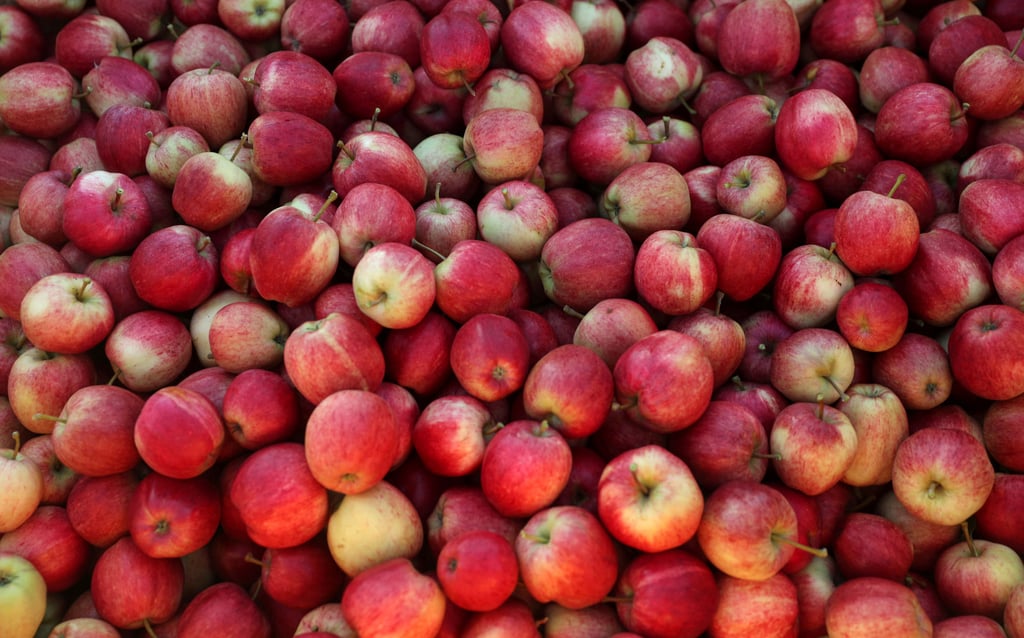
A human rights researcher from Nepal, who wished to remain anonymous due to the sensitive nature of his work, told This Week in Asia that the country joined the seasonal worker scheme in 2021, resulting in “serious adverse impacts and many issues”.
Many of these issues mirror those faced by Indonesian workers, involving unscrupulous third-party brokers and loan sharks.
“Most of the workers who went to the UK were not aware that they could apply for the scheme independently, so they applied through brokers who collected money from them,” the researcher said.
For a six-month visa, workers paid around US$8,000 but often could work for only a month due to the short harvest seasons, he said.
“Promises were made to the workers that they could work in the UK and they had to take out loans from loan sharks to pay the upfront costs. When they couldn’t pay the loans back, they faced huge pressure from the loan sharks,” the researcher added.
“The biggest issue we have seen is societal pressure. The workers thought they would make a lot of money but then couldn’t pay when they got back to Nepal, so many of them fled to other places like Malaysia or absconded from the UK to France or Portugal.”
According to UK government data, almost 5,000 Indonesian and Nepali workers were issued visas for the scheme from 2020 to this year.
The victims of this abusive recruitment approach across Asia have been forgotten and remain in debt bondage
Andy Hall, an independent migrant workers’ rights activist who works on responsible recruitment projects in both Indonesia and Nepal, said “vulnerable and often impoverished Indonesian and Nepali workers have fallen into similar situations of acute modern slavery, particularly as a result of debt bondage from exorbitant recruitment related fees and costs unfairly imposed on them”.
Hall attributed these issues to the failure of the UK farming system to adjust its overseas recruitment practices “to address its labour-sourcing challenges adequately to far-flung countries where the systemic use of irregular recruitment intermediaries exists alongside limited rule of law and minimal understanding of social compliance”.
Such workers end up in substantial debt with limited guarantees that the UK farming system will provide enough work for them to pay off their debts, break even on costs incurred or be able to save for their future, Hall added.
“Until now, three years on, the victims of this abusive recruitment approach across Asia have been forgotten and remain in debt bondage without any remediation,” Hall told This Week in Asia.
For his part, Budi hopes his legal challenge against the Home Office will be successful, believing that both his home country and the UK bear responsibility for the problems he has faced.
“Everyone was in the wrong here,” he said. “Indonesia did not coordinate with the UK about the actual length of the visas and the length of the harvest season. The visas were for six months, but the strawberry-picking season, for example, lasts for a month at the most, so there was never going to be enough work available.
“It made Indonesians victims of modern slavery and human trafficking.”
The final decision on his case is still pending.
16th October 2024: Grocer – Agri HR Ends Indonesian UK Seasonal Worker Scheme Recruitment Amidst Exploitation and Legality Concerns (Article Abstracts)
Original Source: The Grocer – By Grace Duncan – 16 October 2024
Last week the Ministry of Manpower in Indonesia said it would no longer permit direct recruitment of workers via UK seasonal worker operator Agri-HR
Indonesian government kiboshes seasonal worker recruitment
UK seasonal worker scheme operators have pulled out of Indonesia after its government decided against allowing the direct recruitment of workers in the country.
Agri-HR, one of the official sponsors of the seasonal worker scheme, had been running a trial recruiting workers from Indonesia but paused recruitment in May, after it became aware a third party had been charging workers in the country illegal fees outside normal logistical costs.
The pilot had placed 147 workers on UK farms. Following the pause in operations, Agri-HR had been working with the Indonesian government to make direct recruitment possible again in a bid to avoid potentially exploitative third-party agents.
However, last week the sponsor was told by Indonesia’s Ministry of Manpower that it no longer wanted to support the idea of direct recruitment by any overseas recruiters, including Agri-HR.
The policy change meant it was “the end of the line for Indonesian recruitment”, Jan-Willem Naerebout, director of Agri-HR, told The Grocer.…
Seasonal worker scheme campaigners had previously raised concerns over the legality of the Indonesia route as there is a law in the country that requires all “plantation worker” costs, such as transport and logistics, to be paid by the employer or farm.
Under the UK scheme, farmers are not paying these costs, which raised questions among human rights campaigners who argued the situation made the pilot from Agri-HR already “problematic from the outset”.
However, according to Agri-HR, the Indonesian authorities classed workers for the UK scheme as exempt from this rule and therefore the so-called Employer Pays Principle did not apply.
There has been significant debate in the UK farming community regarding the Employer Pays principle, which was brought in as part of industry-wide Sedex audits in September. Many farmers have since walked away from the ethical audit, calling it unworkable.
Additional Reading:
Grocer NEWS 16th October 2024: Agri HR Ends Indonesian UK Seasonal Worker Scheme Recruitment Amidst Exploitation and Legality Concerns
8th Sept 2024: The Guardian – Number of seasonal workers seeking help after being sacked by UK farms doubles in the past year
8th Sept 2024: The Guardian – ‘Targets are unrealistic’: sacked fruit picker tells of treatment on Kent farm
6th Sept 2024: Aljazeera – Indonesian fruit-pickers say seasonal work in UK left them drowning in debt
ITV EXCLUSIVE 5th Sept 2024: Seasonal workers on British farms being given ‘unhealthy and dangerous’ accommodation
24th August 2024 TBIJ: ‘We sacrificed everything we had’: seasonal workers in UK left without jobs after Home Office decision
6th August 2024: Fruitnet – Indonesian picker allegations highlight risk of exploitation for seasonal workers
31st July 2024: BBC Indonesia –‘I’m at my wits end’ – The fate of Indonesia’s aspiring seasonal fruit pickers who have yet to be sent to the UK (translated from Bahasa)
21st July 2024: Guardian Exclusive Investigation – Indonesians who paid thousands to work on UK farm sacked within weeks
16th July 2024: Financial Times – UK food sector should cover migrant workers’ upfront costs, advisers say
Independent 2nd June 2024: Vulnerable workers coming to UK in post-Brexit deal at risk of bullying and sexual harassment, report finds
Independent 29th May 2024: UK ministers pressed ahead with seasonal worker visa scheme for migrants despite UN experts’ warning of forced labour and human trafficking risks
Bureau of Investigative Journalism 29th May 2024: Government expanded visa scheme weeks after UN raised alarm over people trafficking
BHRRC 23rd May 2024: UK – Leading supermarkets asked to meet costs of implementing the Employer Pays Principle across supply chains by civil society group (see 9th May 2024 below); incl. company responses
Bloomberg 22nd May 2024: Fruit Picker Who Said Her Hands Bled From Work Sues UK Employer
Seasonal Worker Scheme Taskforce Update 17th May 2024: SWS Taskforce update on Employer Pays Principle study
GROCER 10th May 2024: SOURCING Workers’ groups call on supermarkets to pay seasonal labour fees – The groups said there are risks farmers will be unable to comply to new rules
Guardian 9th May 2024: UK Government says employers may be required to pay travel and visa costs for people getting seasonal worker visas
9th May 2024: Landworker’s Alliance and Allies call for UK supermarkets to pay recruitment related fees and costs for migrant workers
April 30th 2024: BBC World –England again employs seasonal fruit pickers from Indonesia (translation)
The Grocer 30th Apr 2024: Growers brace for up to £90m in additional seasonal worker costs in UK in move towards internationally compliant zero cost responsible recruitment model for vulnerable migrant workers
3rd April 2024: Financial Times (London) UK employment – Britain’s seasonal worker scheme leaves many migrants in debt, research finds
3rd April 2024: Independent – Migrant fruit pickers saddled with debts of up to £5,500 to come to UK through government scheme
26th January 2024: UK Seasonal Worker Scheme Modern Slavery Issues: Indonesian seasonal fruit pickers landed in debt bondage challenges Home Office
26th Jan 2024: ATLEU – UK government fails to protect workers from trafficking and exploitation
26th Jan 2024: ATLEU – Challenge to government’s Seasonal Worker Scheme
25th Jan 2024 Home Office: UK government survey on experiences of seasonal workers scheme confirms the exceptionally high levels of issues (confusion, fees etc) faced by Indonesian and Nepali workers in 2021/2022
24th Jan 2024: ATLEU – Seasonal worker recognised as a potential victim of trafficking
12th January 2024: UK government ‘breaching international law’ with seasonal worker scheme, says UN envoy
FLEX 26th Oct 2023 – Seasonal Workers’ Rights; Who’s Responsible?
21st July 2023: Vulnerable UK migrant workers at risk as audits of farm recruiters stall
17th March 2023 BHRRC Blog Series: UK Seasonal Worker Scheme Endangers Vulnerable Foreign Workers. (My Op Ed)
23rd February 2023: Farm workers on UK seasonal visas to be guaranteed 32 hours a week
Other stories on challenges of UK seasonal worker scheme:
1. Working in the UK: Hundreds of Indonesian Citizens Escape, More Than 1,200 Workers from Indonesia Threatened to Cancel (BBC, 16th Feb 2023)
2. AG Recruitment, UK recruiter of debt-hit Indonesian and Nepali migrant workers, loses seasonal workers scheme license following forced labour related allegations, worker abscondments and asylum claims (Guardian, 10th Feb 2023)
3. Indonesian former fruit pickers become illegal immigrants and asylum seekers in the UK – ‘This is the easiest shortcut’ (BBC, 26th Jan 2023)
4. Home Office accepts recommendations in Chief Inspector’s report on immigration system as it relates to the agricultural sector (Freeths, 16th Jan 2023)
5. Immigration: Investors warn food companies about risk of forced labour on UK farms (Financial Times 19th Dec 2022)
6. Investor statement on the UK Seasonal Worker Scheme (Public Investor Statement 19th Dec 2022)
7. Hundreds of Indonesian fruit pickers in UK seek diplomatic help (Guardian, 2nd Dec 2022)
8. Seasonal worker visa puts migrants at risk of exploitation, say supermarkets (Guardian, 2nd Dec 2022)
9. Seasonal fruit pickers from Nepal left thousands in debt after being sent home early from UK farms (Guardian, 13th Nov 2022)
10. Indonesia to investigate claims fruit pickers in UK seasonal agricultural workers scheme charged thousands to work in Kent (Guardian, 29th Aug 2022)

